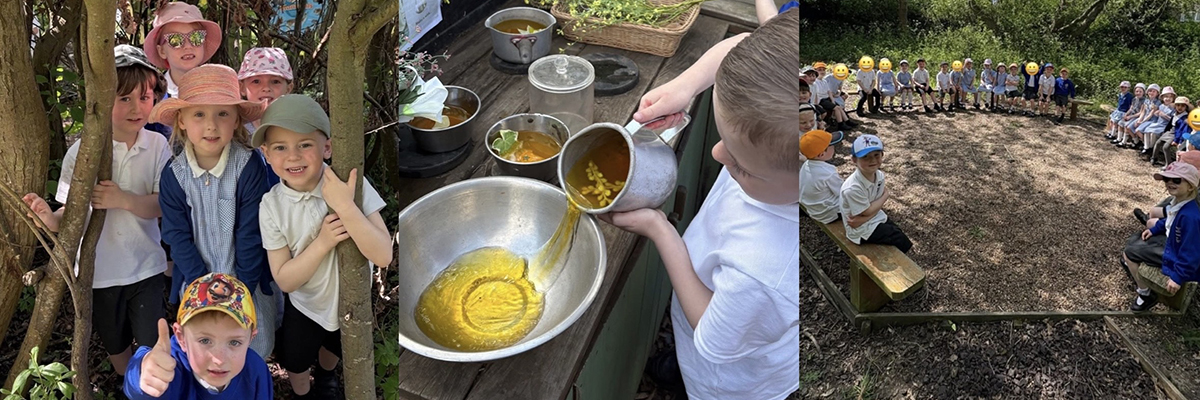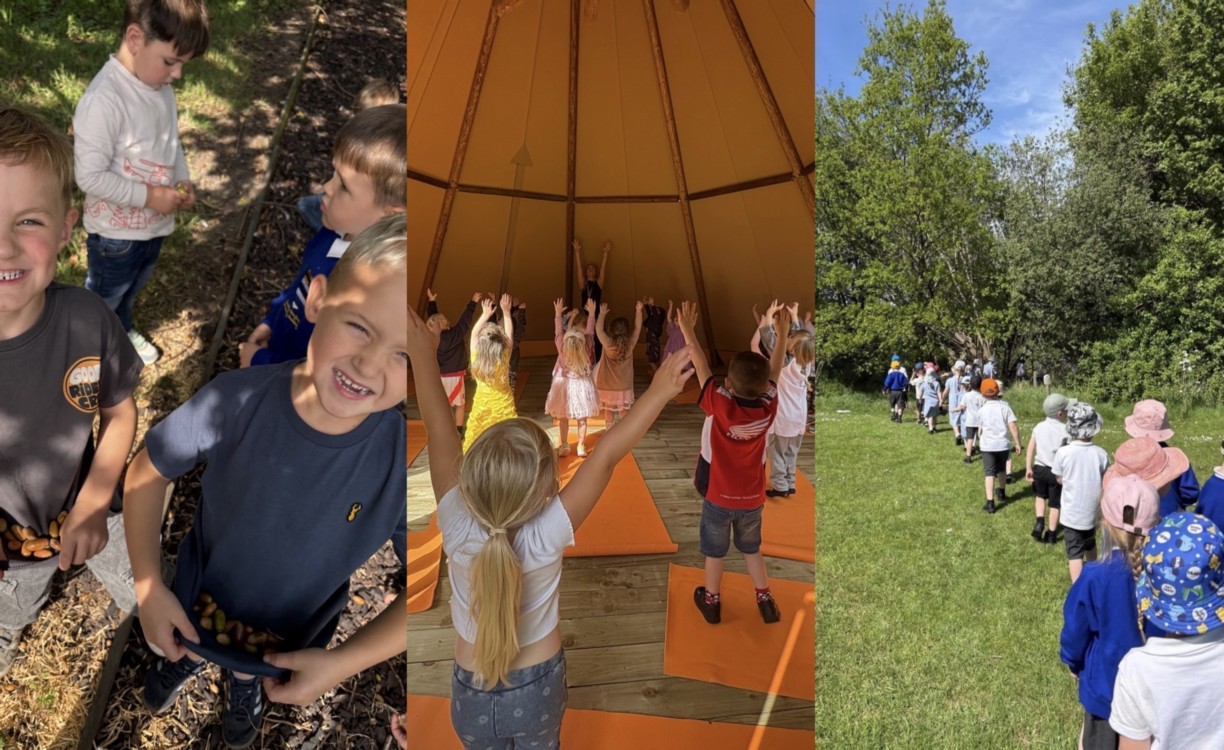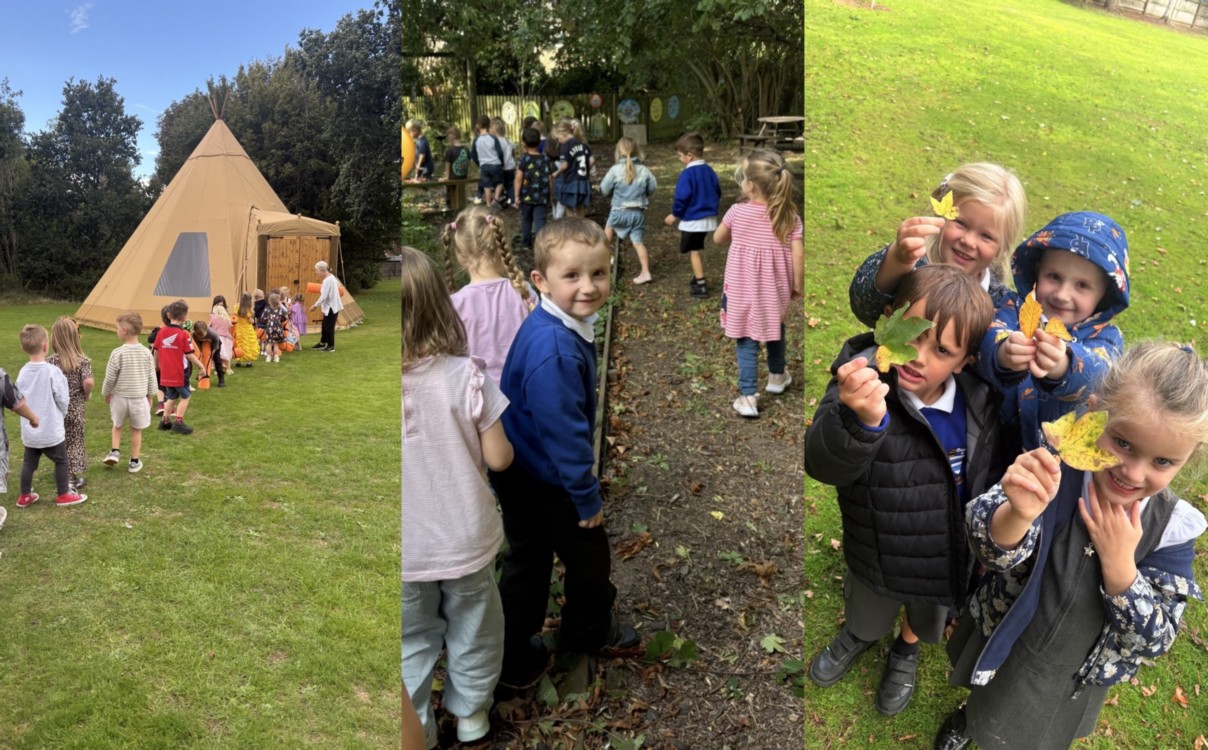
Preparing Your Child for School
School Readiness
Preparing for Reception Class is an exciting milestone! At Laceby Stanford Primary Academy, we see School Readiness as your child becoming a confident and resilient learner who is happy to keep trying, even when a task feels tricky. It's about your child feeling secure enough to say goodbye to familiar grown-ups, come into school willingly, and be genuinely excited about all the new things they'll discover and learn throughout the day. By nurturing their curiosity and independence at home, you're helping them build the skills and enthusiasm they need for a brilliant start to their school journey!

Preparing your child for Reception involves a wonderful blend of growing independence and a blossoming love for discovery! We encourage children to start taking care of their own needs where they can like putting on a coat, confidently washing their hands, and managing their own toilet needs. Beyond these self-care skills, we also focus on helping them communicate effectively: using language skills to share their thoughts and feelings, and asking brilliant 'how' and 'why' questions that show their curiosity about the world. Developing positive social skills, such as sharing and making friends, is also key.
While we will teach them so much at school, a great start also comes from nurturing early skills at home. This includes exploring a sound general knowledge of their world, Identifying their name, developing fine motor skills such as mark making, fastening zips and buttons, recognising and naming basic colours and shapes, and confidently using number names when counting objects. Most importantly, sharing a love of books and stories is the biggest gift you can give them, as it sparks imagination and language development for all their learning ahead!

Putting these great foundations in place at home, alongside all the wonderful learning and support we provide in our Reception class, means your child is set up for success! We're confident that your child will thrive throughout the year, leaving us as happy, inquisitive, and confident learners, fully equipped with the skills and excitement they need to conquer Key Stage 1 and continue their educational journey at Laceby Stanford Primary Academy.
How Our EYFS Team Prepares Your Child for School
At Laceby Stanford Primary Academy, our EYFS team works incredibly hard to ensure your child's transition into school is as smooth and happy as possible. This preparation takes a holistic approach, which means we support the whole child through this big change. We focus strongly on their social and emotional development, recognising that starting school is a significant life event that can bring both excitement and big feelings! By working closely with you and their current setting, we learn about their individual personalities and needs, helping us to gently ease them into school life so they become happy, confident, and resilient learners from day one. We achieve this through close collaboration with local preschools and nursery settings, sharing vital information on each child's learning styles, developmental milestones, and next steps. We warmly welcome pre-school staff to bring children to our setting, allowing them to spend time here so they become comfortable and secure in their new environment and familiar with our engaging activities. Miss Wilson, the Reception teacher, and the team will also visit children in their current settings to get to know them. A special part of our welcome includes a home visit, where we meet your child and provide a little welcome gift. Finally, all the children are invited to a fun Teddy Bears' Picnic where they can meet one another and start building friendships before their exciting journey together begins at Laceby Stanford Primary Academy!
Realise the value of play as a means of development
It is important that in the early years that we, (the parents, the pre-school and the school) make ample provision of a wide range of opportunities for the children to learn through play.
Areas of play which are valuable:
- vigorous play ( e.g. climbing),
- experimental play ( e.g. exploring sand),
- creative play ( e.g. painting),
- fantasy or pretend play ( e.g. dressing up).
Encourage lots of conversation
Talk to your child and listen with interest to what they are saying.
Try to extend their conversation by asking them questions, encouraging them to make observations etc.
Make the most of trips and visits.
Develop their ‘mathematical’ understanding by looking at shapes and using vocabulary such as ‘over and under’, ‘behind and in front’, ‘most and least’, ‘tall and short’ etc.
Value your child’s creative efforts
Praise them and put their work up on the wall.
Provide story books, paper, pencils, crayons, paints, scissors etc
Give your child lots of positive encouragement to use them, but don’t pressurise them.
Share and read books with your child
Let your child see how a book works, move your finger on the page and point to each word as you read, so that your child will learn that the text moves from left to right and from the top to the bottom of the page.
Encourage lots of discussion about the pictures.
Take your child to the library regularly.
Encourage children to recognise whole words
Their name, words on cereal boxes, on adverts, shop signs etc.
Introduce individual letters to your child
Remember to call them by their sounds e.g. ‘a for apple’.
Avoid using capital letter names as this will confuse your child when they start school.
Joined up handwriting
Our handwriting and recognition of letter sounds are in a progression of ‘letter families’.
The actual writing can be found in a hard copy of the school brochure or on a separate sheet which can be obtained by contacting the school office.
Numbers
Encourage recognition of numbers and counting in practical situations. If counting is done ‘parrot fashion’ then your child will not have really grasped the concept of number.
Before coming to school, play lots of games which use number, count objects practically, learn to count using fingers, experience people handling money, sing songs about numbers such as ‘Five Green Bottles’ etc.
Encourage independence
Let your child try to put on his/ her own coat.
Encourage your child to ‘try first’ before giving help. Praise them for trying.
Social skills
Making friends is very important for children. It is always easier for children to settle into school if they have already made some friends. If your child has attended a pre-school then this will help them mix with other children. At school they will work in a variety of ways; with the whole class, half the class, in small groups, pairs and in a one to one situation with an adult.
Small skills, such as remembering to flush the toilet themselves can make a big difference in helping them to settle in.
Don’t worry
If for example your child can’t recognise his/ her name, remember that all children are different, there will be some children who are ready before others. You should, therefore, avoid comparing your child’s achievements with others.
Above all – childhood is a special time, so make the most of it and enjoy bringing up your child!
New Starters Transition Meeting
We deeply value the strong relationships we build with our parents and carers, as we know that starting school is a big change for the whole family too! To support you through this transition, all parents and carers will be invited to a crucial new starter meeting before the term begins. This is your chance to meet the senior leadership team and reception team, including the class teacher Miss Wilson. This meeting will allow you to gain a full insight into life at Laceby Stanford Primary Academy. We'll cover everything you need to know about your child's first days, what the school day looks like, and how everything runs here, ensuring you feel confident and fully informed for your child's exciting start to school.